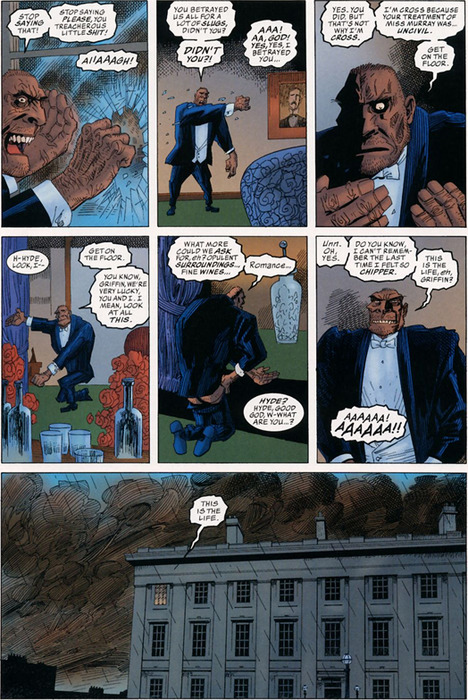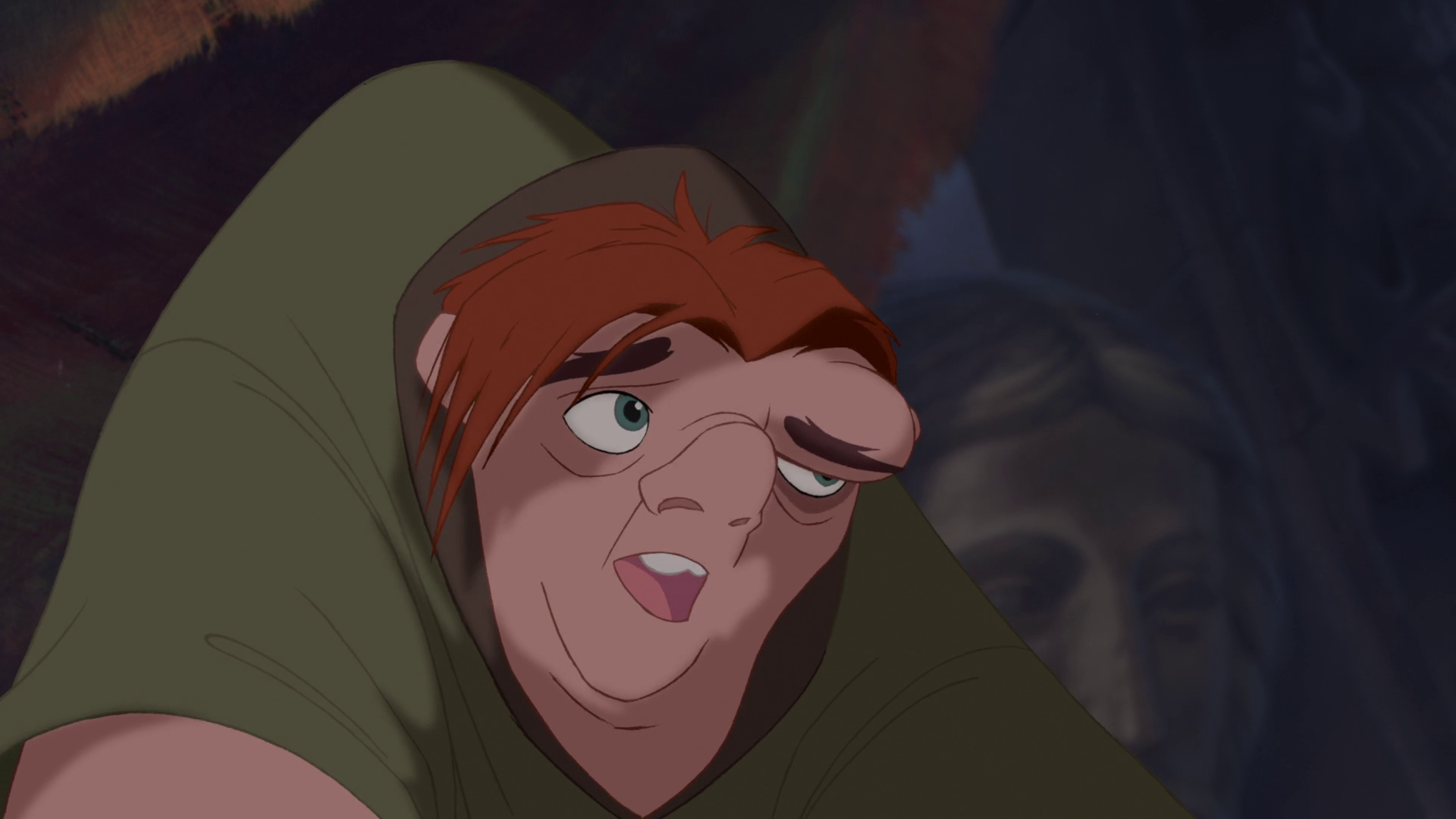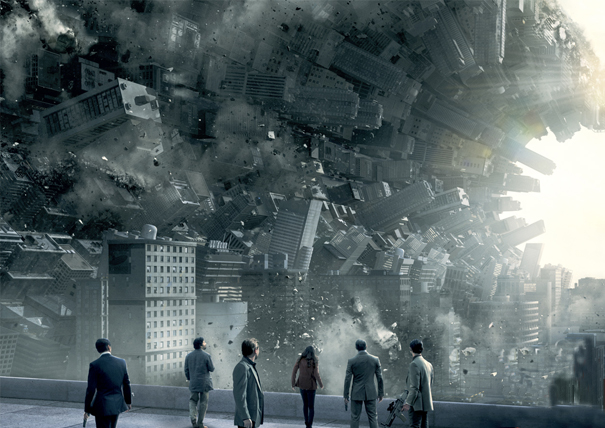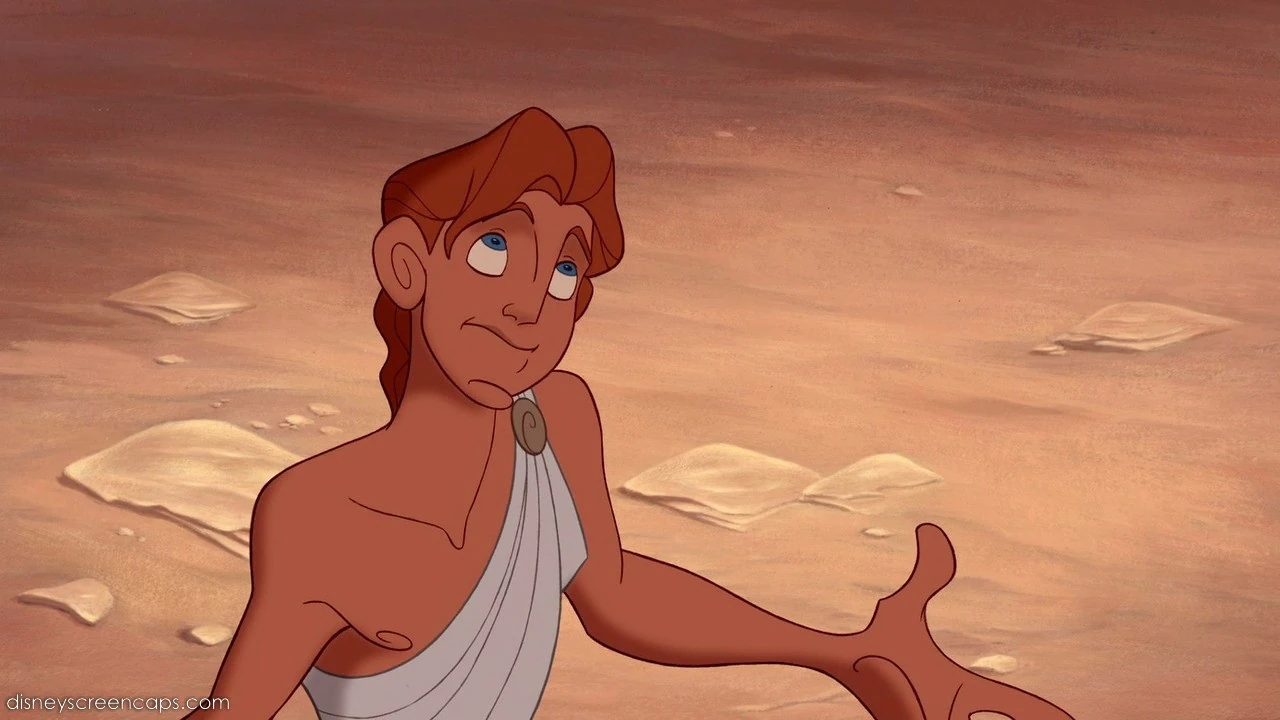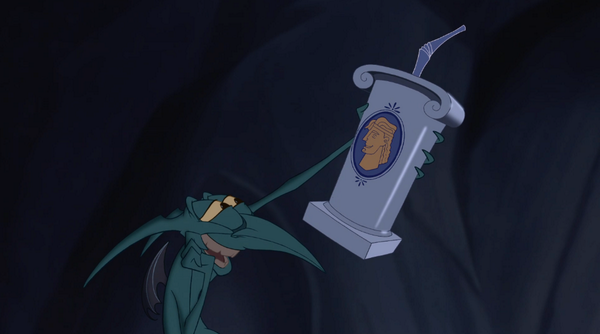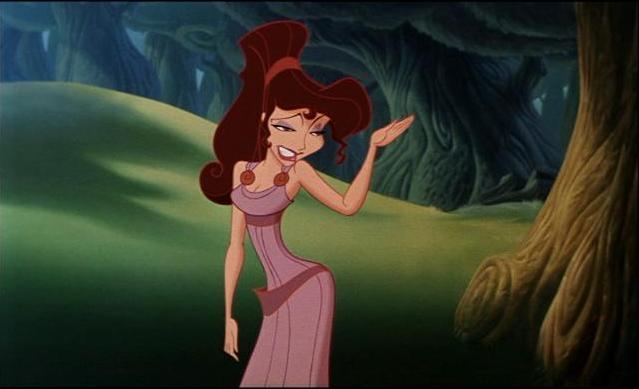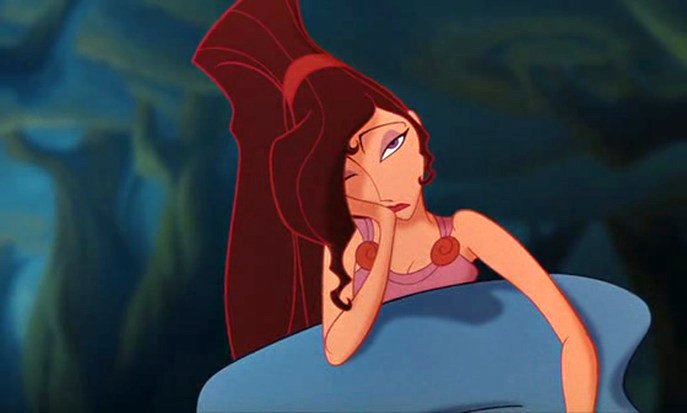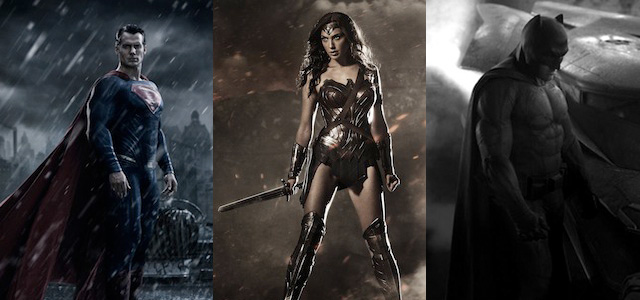I'm of course talking about Melaka (Mel) Fray the Vampire Slayer. While most will be able to recall the awesomeness that was Buffy the Vampire Slayer television series, not many are aware of the comic book series sequel, Fray.
Written by Joss Whedon, geek overlord, Fray was a continuation of the Slayer mythos set in the Buffyverse, just several centuries after the events of the television show. It follows the story of Mel as she learns that she is the Slayer and has to accept her destiny. Of slaying undead things.
 |
| Not to mention getting to grips with her innate Slayer ability to strike cool posses while making impassioned speeches. |
Fray has all of the usual Whedonisms: relatable characters, snappy dialogue with an interesting vocabulary and inventive vernacular, a strong central female character who resists the destiny she is told she must fulfill, the death of an enduring secondary character as motivation for the main character to spring into action in the final act [SPOILERS, I guess], great writing with a couple of questionable or awkward moments, and a rollicking good time.
Whedon has recently come under fire in the Twittersphere from incensed fans for the direction Black Widow's character arc took in Avengers 2: Age of Ultimately How Many of These are There Going to Be Exactly?.
 |
| "Uh... what? Come again?" |
Now, minor spoilers here, but a number of people didn't really get into the, admittedly rushed/forced, romance between Black Widow and Bruce "I'm always angry" Banner, with one scene in particular causing a certain sectors of fandom to cry (no hyperbole) misogyny.
Before I get into the details, let's just put this in perspective. This is Joss Whedon we are talking about. A prominent and outspoken feminist. A man who has repeatedly been praised for his efforts in addressing the issues facing feminism and gender equlaity, whether through his own actions or the support of other vocal feminists.
A man, who when asked why he constantly writes strong female characters, responded, "Because you keep asking that question".
That's who we are talking about here.
 |
| "And people said what, now?" |
However, as this wonderful article by Todd Van Der Werff for Vox points out, while Whedon is personally and politically a feminist, his creative work doesn't always fit that label, at least not wholly. This is not to attack his work but rather an acknowledgement that it sometimes not always occasionally isn't as feminist as it could/should be.
This has to do with Whedon's creative priorities, or as Van Der Werff puts it:
Whedon's work trends toward feminism, but his true great cause is storytelling, and he always prioritizes the latter if it makes for a better story. Whedon likes to tell stories that test the strength of communities, stories where horrific actions are often forgiven and written off because the larger community requires it. And though this is why his stories are so frequently good, it also has a tendency to clash with his fictional feminism.Essentially, if it fits the type of story he wants/feels compelled to tell, he will occasionally write his (still strong and relatable) female characters into narrative tropes that aren't particularly feminist and verge on old gender stereotypes for the sake of the greater story.
 |
| "I don't like where this is going," |
Where this relates to Avengers 2: This One Has Robots In It is that Black Widow's character arc has been sacrificed to an extent for the greater story being told. Not sacrificed really. More like poorly handled with a not so well-written scene which seems to suggest a far more stereotypical (and almost insulting) trope than I think was intended.
The scene in question involves Natasha (Black Widow), played again to perfection by Scarlett Johansson, and Bruce Banner discussing their (somewhat forced) feelings toward each other when all of a sudden the topic of having children comes up. I'm sure it's completely normal for that topic of discussion to come up before you even go on a date, right guys? That's what normal people do. It's not jumping the gun at all.
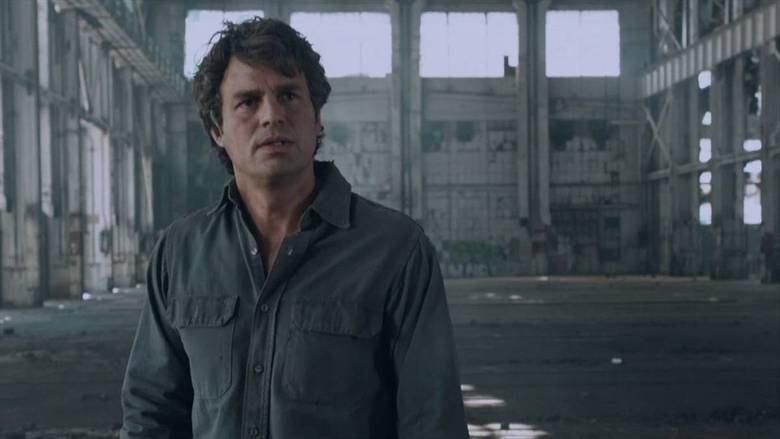 |
| "Was that too soon? It was too soon, wasn't it?" |
So in this completely normal discussion about having kids and a 'normal life', Banner describes how he can never have or offer that since he's a monster or something because he gets a little green sometimes. Then Natasha retorts with her back-story and how the procedure that made her so badass and top secret spy-y was terrible and that Bruce isn't the only monster on the team.
That would have been fine but, unfortunately for the scene and Whedon, it's rather clumsily written and this is where the whole thing kinda Hulk-busts apart. The graduation for the hardcore spy training was an infertilization procedure. Therefore, it makes it sound like Natasha is saying that it is her inability to have children makes her a monster.
To be honest, that's how I initially interpret that scene and I did take some issue with it, purely on the basis that the inability not to reproduce isn't at all monstrous and it was sorta odd hearing a character who never before displayed any interest in having children saying it.
 |
| "Hulk confused..." |
However, having thought about it, I think the scene was supposed to convey how being subjected to the procedure and having her agency to choose taken away is what made her a monster. But something obviously got lost in the translation, which is something Scarlett Johansson knows all about. If that had got across, it obviously would have avoided the "women are limited to or defined by their reproductive abilities" trope. But it didn't. So it kinda doesn't.
Also, for the record, I also can totally see why out of all the Avengers, Black Widow would be romantically involved with the Hulk because in him she sees the same dilemma she sees in herself, of controlling the monster and not giving into her darker impulses.
Of course, the fact that they never had never had anything more than friendly flirty and little to no full blown romantic chemistry kinda derails that, but I can kinda see why they went there.
Oh yeah, I was supposed to be talking about Fray.
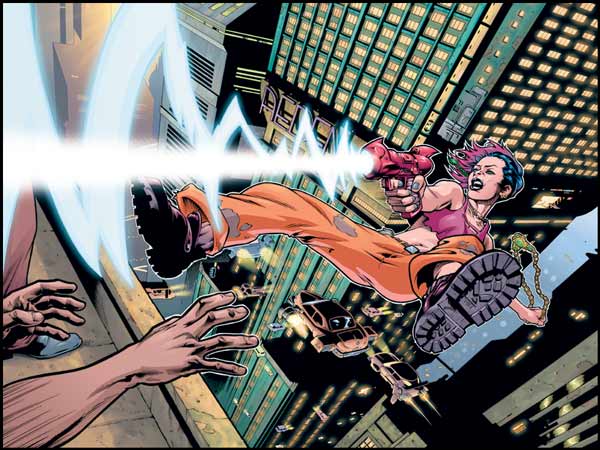 |
| How could I not be talking about Fray?! |
As stated way up above, Fray is about a vampire slayer... in the future! There are blasters and flying cars! In this timeline, vampires and the other demons have been expelled from Earth for centuries because of something Buffy did in the past (I think she might have locked the door preventing them from coming in).
Our protagonist is a thief who doesn't realise that it isn't common for normal people to survive falling from a building while crashing into a bunch of flying cars (they have flying cars!). Anywho, she meets a demon who wants to train her so she can become the Slayer and prevent the lurks (what vampires are now called) from reopening the portal to the demon dimension.
What's most striking reading this again after seeing Whedon's Avengers movies is that this comic is essentially the blueprint for the script of the first Avengers movie, just minus the multiple superheroes in brightly coloured tights and with vampires instead of aliens. All the same narrative beats can be found within the pages of Fray.
 |
| The Avengers never had the hero shoot a horned demon with a blaster however. |
Like The Avengers, it takes a good chunk of the beginning to just establish the world and characters before the plot even gets going or the characters interact (it took 40 minutes or so before the Avengers are actually assembled). Then the protagonist(s) mistrusts their new comrades and/or Nick Fury-father figure because they're a rebel or don't work with well with others.
They will then get into a fight with the bad guys and kinda get their asses handed to them. However, the death of an endearing secondary character motivates the protagonist(s) to go into serious mode and they approach the climactic battle with more determination and unrivaled badassery ensues.
However, there was something that both The Avengers and Fray had in their climactic battles. Something that proves my point Whedon used Fray as a bluepoint for The Avengers script. Something that is far too amazing not to share.
This something was not simply a narrative beat or similar story arc repeated again (since most stories do tend to follow common narrative beats which form the building blocks of storytelling). No, this was something far more tangible and concrete. A repeated element that suggests that Fray pretty much inspired the climatic battle in The Avengers.
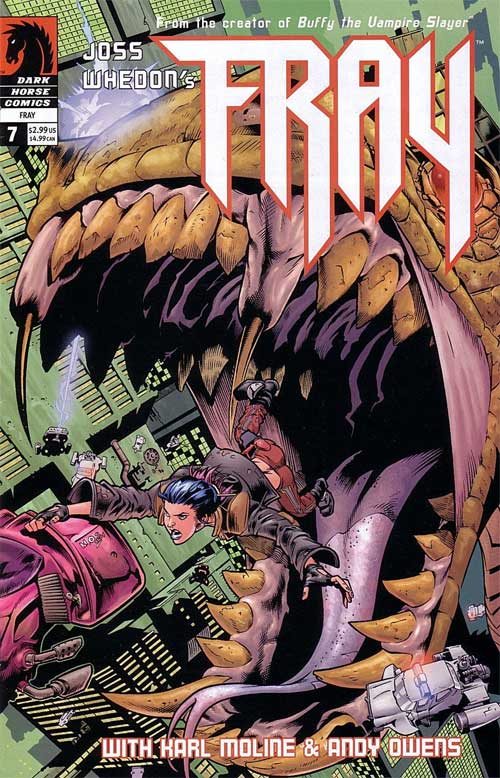 |
| Yes, that's right. There is a giant worm dragon thing that flies over the city in the final battle. |
Almost identical to the giant alien dragon things that fly over the city in The Avengers, Fray has to kill the Gateway demon in the climatic battle. True, she gets swallowed by it and kills it by going for its brain opposed to just hulking out and punching it in the face, but you get the idea.
Also, there are twins in Fray and there are twins in Avengers 2: Ages 12 and up, so those movies are practically identical.
References:
Fray Wikipedia page
Buffyverse Wikipedia page
Buffy the Vampire Slayer Wikipedia page
A guide to the growing controversy over Joss Whedon’s Avengers and Marvel’s gender problem

